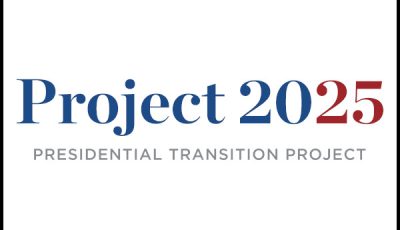Porn Can Do Better — and to Survive, It May Have to
 LOS ANGELES – As much as I stand by the right of people who make and consume porn to think, write, depict and say a lot of things I personally find truly repulsive, there’s a difference between what people have the right to do and what it’s smart, wise or in the self-interest of a business to do.
LOS ANGELES – As much as I stand by the right of people who make and consume porn to think, write, depict and say a lot of things I personally find truly repulsive, there’s a difference between what people have the right to do and what it’s smart, wise or in the self-interest of a business to do.
For many years, the porn industry has operated largely off the radar when it comes to sensitive issues of race, gender equality, workplace safety, sexual harassment and many other areas businesses in other fields ignore at their own peril.
In a sense, the fundamentally taboo nature of porn has served to shield businesses that produce it. How can one produce a pornographic film without straying into areas which, in any other context, might be considered sexual harassment or fostering a hostile work environment?
Provided he doesn’t do it in the context of a staff meeting, a male director using the word “whore” in reference to a female employee is likely to be part and parcel of a scene’s dialogue. Speaking of meetings, how does one go about having a niche-marketing strategy session without using highly-charged sexual terms?
On the other hand, there are some lines porn crosses that are entirely voluntary, fundamentally unnecessary and have nothing to do with the requirements of the form. Marketing movies using degrading racial slurs comes to mind, as does fetishizing entire ethnicities. Both tactics are well-known to anyone who produces or promotes “interracial” or “Asian” porn titles.
One of the inevitable byproducts of porn’s “mainstreaming” in the internet age is more eyeballs focused on the products we make, a development that necessarily means greater scrutiny of our work, as well. One reflection of this increased scrutiny is the increasingly diverse nature of porn’s critics.
Once upon a time, there were essentially two groups that were openly and loudly critical of porn: The Christian right and the feminist left. Primarily because these two movements were diametrically opposed on virtually every issue other than their shared disapproval of porn, the prospects of them forming a united front to lobby as one against the porn industry were remote, to put it mildly.
In recent years, though, as more and more people of all walks of life have been exposed to porn, either directly or by way of being in a relationship with someone they see as having a problem caused by porn consumption, the chorus of voices calling for greater regulation, censorship or critical awareness of porn has grown well beyond social conservatives and feminists.
In my view, the legitimacy of some of the criticism currently aimed at porn and the adult industry that is undeniable. Who, for example, can deny racism is rampant in porn?
You can rationalize the choices some studios, directors and marketers make however you wish (they’re simply delivering what the market wants to see, ethnic fetishism is a valid form of kink, there’s no requirement for “political correctness” in exercising one’s free speech, etc.) but such rationalizations can’t change the fact racially charged language, stereotypes and depictions are abundant across some of porn’s most popular categories.
I assume companies that employ overt racism in marketing their products do so because they have reason to believe the tactic “works” from a sales and revenue perspective. I’m sure the people behind these products would swear on the lives of their mothers they aren’t racist themselves.
The problem with this line of thinking is the willingness to feign, invoke or appeal to racism for the sake of generating a profit isn’t any less ethically or morally repugnant than overt, personal racism. Hell, at least “legitimate” racists are being honest with the rest of us. It’s not a particularly compelling form of integrity, granted, but at least they’re not invoking the First Amendment in callous pursuit of revenue.
I’m focusing on the treatment of race in porn here (which gets far worse when we get to the subject of off-camera racism within the industry — which really can’t be explained away by marketing strategies), but the same critique can easily be levelled at the kinds of sex acts depicted in a lot of porn, the casual sexual violence present in so much modern gonzo, “fauxcest” videos, rape fantasy porn and a variety of other dicey subgenres.
Even if you can’t see the compelling ethical or moral reasons for the porn industry to change its stripes, the increasing visibility of porn and the inevitable scrutiny that comes with it may soon force you to reconsider.
In other words, the same profits people use to justify their dalliance with racist, sexist or otherwise objectionable ideas and depictions may soon dry up – and in the process, shine the wrong kind of spotlight on your business if you don’t adjust along with the times.
In a sense, the question is this simple: As the market and audience for porn continues to grow and shift, and the same sorts of things that already are considered completely unacceptable in mainstream entertainment come to be seen the same way by a strong majority of the porn-consuming public, do you really want to be the company standing by its continued use of the N-word as a matter of ‘principle’?













